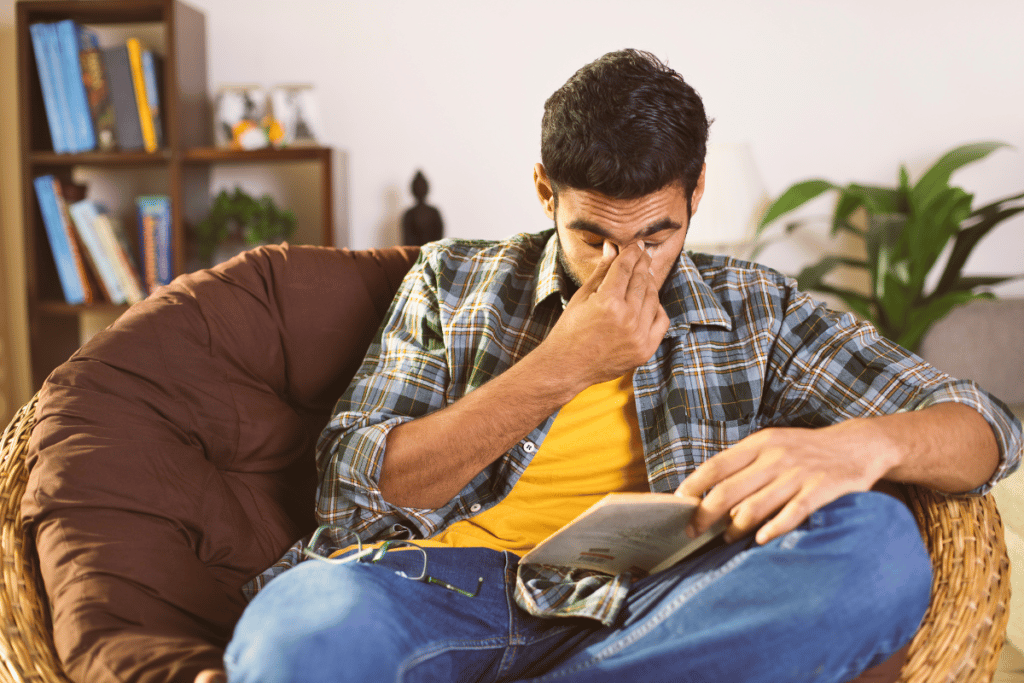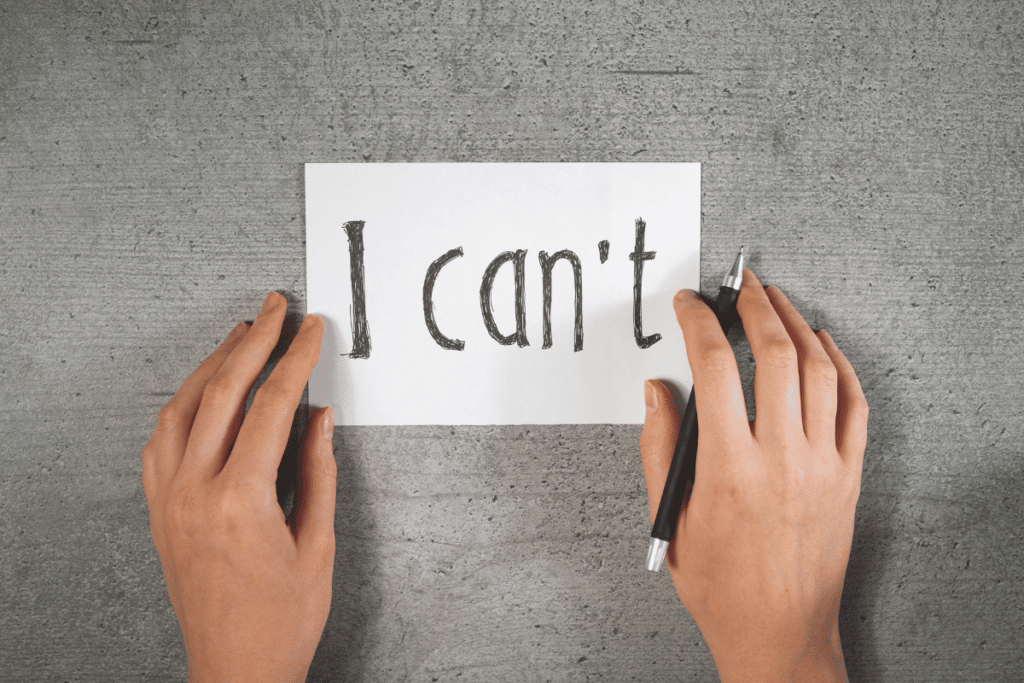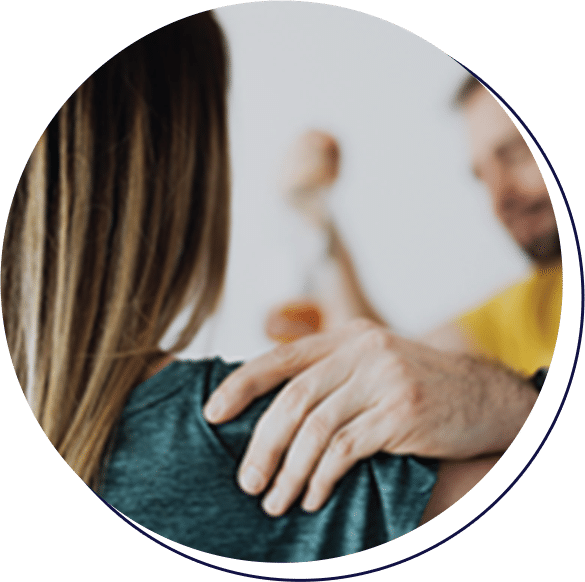Effects of Social Media Addiction
Teens and adolescents continue to struggle as the effects of social media addiction manifest both mentally and physically in their everyday lives. Many struggle with depression, anxiety, eating disorders, and sleeping habits. Some have been so negatively affected by social media addiction that they turn to self-harm, even taking their own lives.


- Content last updated on:
- September 18, 2025
Written and edited by our team of expert legal content writers and reviewed and approved by

- Content last updated on:
- September 18, 2025
Although many adolescents use social media in healthy ways, some develop serious addictions. While the term “addiction” is often used in casual conversation, social media addiction is a serious condition with serious consequences.
Warning Signs
The following changes in your child’s behavior could signify unhealthy social media use or addiction:
- Neglect of real-life obligations and activities previously enjoyed
- Inability to stop using social media
- Anger or distress when unable to use social media
- Obsession with social media even when not online
- Using social media in secret
- Disruptions in sleep, eating, and exercise patterns
Impact of Social Media Addiction
Human beings are naturally social creatures that benefit emotionally and physically from social interaction. However, the beneficial effects of social interaction occur face-to-face.
Social media interactions are often inauthentic. The advertisements and images on social media are edited and unrealistic. Many young people, perceiving these as real, compare themselves and their lives to what is depicted in these images and try in vain to measure up. Lawsuits are being filed on be half of young people nationwide for many of the effects discussed below.

Sleep Deprivation
Studies show that Americans check their phones an average of 344 times per day. Many teens even sleep with their phones and check notifications throughout the night and fail to achieve uninterrupted sleep. Sleep deprivation has a strong association with increases in the following:
- Depression
- Suicide
- Psychological distress
- Anxiety
- Difficulty concentrating
- Hyperactivity and nervousness
- Aggression
- Substance abuse
- Long-term mental illness
The American Academy of Pediatrics recommends limiting device use to two hours per day at a maximum for optimal sleep quality.
Neglect for Real-World Obligations
Pathological social media use results in the prioritization of social media relationships at the cost of real-life responsibilities and relationships. The compulsive need to constantly check and respond to social media notifications creates distractions that interrupt the course of daily activities and conversations.
Academics
Social media addiction has been shown to cause a significant decline in academic achievement. This can be caused by the prioritization of social media over schoolwork as well as a secondary impact of sleep deprivation.
Relationships
Social media often displaces real-life relationships as teens and young adults prioritize virtual relationships. The constant need to check notifications makes it impossible to focus attention on real-life conversations and events.
Some adolescents are so focused on measuring up to what is portrayed on social media that they participate in events only to obtain material to post. They may be unable to enjoy the activity as they obsessively take photos and create posts throughout the activities.
The result is increased isolation, loss of friendships, and stunted social skills.

Low Self-Esteem
Social media incentivizes identity manipulation and reputation editing in ways that cause young people to view themselves as inadequate. This takes advantage of adolescents’ natural social competitiveness and drive to belong, causing them to feel outclassed and unattractive.
This undermines their self-confidence and leads to further isolation as they struggle with their true identity, try to hide it from others, and live vicariously through their virtual identity.
Body Image Issues
Adolescents often perceive people on social media as “much more attractive” than themselves, but only “slightly more attractive” in real life. In one study in the U.S. and the U.K., 40 percent of girls and 14 percent of boys reported feeling worse about their bodies after using Instagram.
Eating disorders, including anorexia, bulimia, crash dieting, and disordered eating are on the rise. Social media increases pressure to be thin and, in many cases, promotes and glorifies eating disorders.
Self-Destructive Behavior
Self-destructive behavior is a natural consequence of sleep deprivation, intense pressure to measure up to impossible standards, and the increased isolation that excessive social media use causes.
Self-Harm
Higher amounts of time spent online demonstrably increase non-suicidal self-injury (NSSI) among young people. Social media contains many posts and communities that promote self-harm and describe their own experiences, which vulnerable youths emulate. Teens and young adults who engage in NSSI are at higher risk of suicide.
Suicide
Suicide is the second-leading cause of death among young people ages ten to 24, and the rates have tripled among girls and youths between the ages of 10 and 14. Suicide rates are especially high in African American children under 13. Rising suicide rates in these groups correlate with the rise in social media use, especially when social media is used for two or more hours per day.
The most significant contributing factors include the following:
- Cyberbullying: cyberbullying is more strongly associated with suicide than real-life bullying, possibly because the effect can be viral, permanent, and relentless
- Sleep deprivation
- Heavy use of social media
- Exposure to content related to self-harm and suicide
- Negative social comparison
- False identity (being untrue to oneself)
- Unmet needs for connection to others
Emergence or Worsening of Mood Disorders
Problematic social media use can exacerbate existing mood disorders or create new ones.
Depression
Teens often use social media to fill a void that is created by a lack of confidence in real-life situations. Low self-esteem or shyness can lead a young person to create a virtual identity and live in a virtual world. This increases loneliness, isolation, and depression. Studies show that increased social media reliance correlates to decreased satisfaction with life.
Anxiety
The fear of missing out, guilt, and internal pressure drive the need to check every notification and respond quickly. As social competition and pressure increase, sleep deprivation continues, and real-life obligations suffer, anxiety often develops.
Substance Abuse
Each “like” and positive response can create a dopamine release that becomes a high. Over time, dopamine tolerance may develop and cause a reduced result. A young person may turn to drugs or alcohol in hopes of experiencing the highs that social media no longer produces. Deepening depression, anxiety, and other effects of social media use contribute to this risk.
How Parents Can Help Their Children Overcome Addiction to Social Media
Addiction treatment requires more than restricting activity. Social media addiction is no different. The brain reward system disorder and underlying mental health needs must be addressed. The following supportive measures can help your child overcome problematic social media use as you work toward a solution:
- Focus on healthy coping mechanisms that help your teen overcome or adapt to troubles rather than escape.
- Manage your teen’s screen time by providing reasonable time limits and teaching self-regulation.
- Teach your teen to use social media purposefully rather than mindlessly scrolling.
- Keep notifications turned off.
Be willing to seek outside help. Some teens can overcome social media addiction with outpatient therapy, while others require inpatient treatment.
What to Do if Your Child Has Been Harmed by Social Media
If your child has been harmed by social media, you are not alone. Social media companies have known for years that their products are harmful, yet they have continued to promote their products to young people while refusing to take effective measures to make their platforms safe.
This is egregious, and they will never stop harming children and young adults until they are held accountable. Contact us today if social media has harmed your child.
Frequently Asked Questions
For individuals and children who have been
We only handle cases on a contingent fee basis. This means that we are paid a portion of any recovery obtained in the case and you do not owe us any attorneys’ fees if the lawsuit does not result in a recovery.
Every case is unique. Our attorneys will work with your family to evaluate your potential case and help you evaluate whether filing a lawsuit or other legal proceeding is in your family’s best interest. Generally speaking, the types of cases we handle involve serious mental health effects, including attempted or completed suicide, eating disorders, inpatient mental health treatment, or sexual trafficking/exploitation that was caused by or contributed to through addictive or problematic social media use by teens and young adults.
We are a law firm based near Seattle, WA comprised of lawyers who have spent their entire careers representing victims who have been harmed by dangerous products. We are also parents. Shocked and troubled by the recent revelations about the harm caused to teens and young adults by social media platforms, which powerful technology companies have designed to be highly addictive, Social Media Victims Law Center was launched specifically to help families and children who have suffered serious mental harm or exploitation through social media use to obtain justice.
Your Child's Experience Matters, and Their Story Could Make a Difference
Related Pages
Client Testimonials
Is Your Child Addicted to Social Media?
You Are Not Alone.
We have helped hundreds of families just like yours whose children and teens were affected by social media addiction.
Explore Popular Topics

Addiction

Suicide

Eating Disorders

Anxiety

Bullying

Sexual Abuse

Body Image


